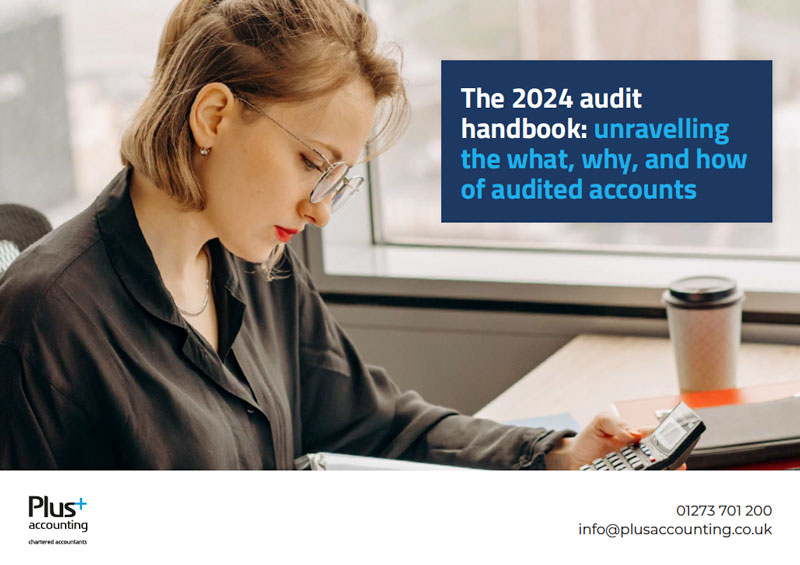Auditing has recently been the subject of bad press and increased public debate due to both the collapse of Carillion, and the auditors of BHS receiving large fines for misconduct.
Auditors are independent accountants who are required to give an opinion on the financial statements through a rigorous audit process. But can they add value?
Auditors are required to plan and manage the audit in a professional and efficient manner and should be open and honest. An audit provides a detailed review of a company’s books and records on a sample basis as well as a review of the internal controls.
How do audits add value to a business?
A few areas that an audit can add value are as follows:
An external audit provides an independent viewpoint, enhancing the credibility and reliability of the financial statements.
Advice on internal control weaknesses
Controls form an important part of ensuring reliable and accurate financial reporting and the safeguarding of assets within internal systems. Controls may be tested as part of an audit and advice can be given to improve these controls to ensure they are working as effectively as possible.
Add reliability to the financial statements
If a company is looking to be sold in the future or obtain further finance, having audited accounts can improve the reader’s perception of the accuracy of the financial statements.
Find and stop instances of fraud
Although not an external auditor’s responsibility to detect fraud, it is possible that instances of fraud could be picked up as part of the audit testing.
Make use of an external auditor’s expertise
Discussions between the auditor and management about the business and its future plans could benefit the company as it will be able to make use of the expertise, commerciality and knowledge of the auditor.
An independent review by the auditor can provide valuable insights and recommendations for the business.
Confidence to management
An audit should give management confidence that the information in the financial statements and management accounts is accurate, letting them make operational decisions to improve the future prospects of the company.
Identify Opportunities for Improvement and Growth
Audits reveal inefficiencies and highlight areas for optimisation. For instance, they can identify deficiencies in the accounting systems, enabling you to streamline operations. They can also uncover redundant processes or excess inventory, enabling you to streamline operations. They also identify financial risks, offering strategies to mitigate them. By analysing financial statements, audits assess profitability and suggest areas for investment or cost-cutting, driving strategic growth decisions.
Increase Transparency and Credibility
An audit enhances your business’s transparency. It provides a clear and transparent picture of your company’s financial position, which is crucial for stakeholders. Accurate financial reporting builds trust among stakeholders, including investors and clients. It assures them that your financial practices comply with regulations. This transparency can improve your credit rating and facilitate easier access to financing.
Protect Business Reputation
Audits safeguard your business reputation by ensuring compliance with industry standards and legal requirements. They detect errors or fraudulent activities, reducing the risk of reputational damage. Reports generated from audits demonstrate your commitment to accountability and integrity, which can favourably influence public perception and client confidence.
This is particularly important if you are planning a business sale, as it can increase the value and credibility of your business.
See How We Can Help You…
We offer bespoke audit services tailored to your business needs. Our expert team delivers comprehensive assessments that go beyond the numbers to uncover hidden opportunities. By choosing our services, you gain:
- Detailed Efficiency Reports: Identify inefficiencies, providing data-driven insights to streamline your operations and boost productivity.
- Financial Accuracy Evaluations: Ensure your financial statements reflect true and fair value, aiding accurate reporting and better decision-making.
- Risk Management Strategies: Mitigate financial risks with robust strategies tailored to your business’s specific challenges.
- Actionable Recommendations: Receive practical advice for improving operations and achieving sustainable growth.
- Compliance Checks: Adhere to regulations and standards, protecting your business from legal risks and penalties.
- Voluntary Audit: Opt for a voluntary audit to gain tailored financial insights and identify opportunities for improvement.
Our audits enhance transparency and stakeholder confidence. With our detailed reports, stakeholders understand your commitment to integrity and excellence.
Invest in our audit services to strengthen your business foundation and drive future success. Our expert guidance transforms insights into actionable strategies, ensuring your business remains competitive and resilient in an ever-evolving market.
Benefits of non-statutory audits
Non-statutory audits offer several advantages beyond mandatory compliance. These audits identify inefficiencies, assess risks, and provide strategic insights without regulatory constraints. Even if your company falls out of the audit regime due to increased audit thresholds, electively commissioning an audit can provide tailored financial insights.
Identifying Weaknesses
Non-statutory audits uncover operational and financial weaknesses, offering targeted solutions. For example, they can highlight issues in inventory management, cash flow, and internal controls. Businesses then can implement corrective measures to improve overall efficiency.
Enhancing Financial Performance
By focusing on areas neglected in statutory audits, these audits help enhance financial performance. They review non-standard transactions, revenue streams, and cost-saving opportunities, enabling better financial health. For instance, they might identify redundant expenses or reveal untapped revenue sources.
Improving Stakeholder Confidence
Non-statutory audits build stakeholder confidence through transparency and detailed reporting. Detailed insights into business operations reassure investors, customers, and partners. Regular non-statutory audits demonstrate a proactive approach to governance and accountability.
Supporting Business Growth
These audits support business growth by identifying potential areas for expansion and improvement. They provide a detailed analysis of market trends, operational efficiencies, and competitive advantages. Leveraging these insights, businesses can make informed decisions that drive sustainable growth.
Strengthening Risk Management
Non-statutory audits strengthen risk management by evaluating existing controls and identifying new risks. For instance, they assess compliance with internal policies, detect fraud, and evaluate cybersecurity measures. Businesses can then tailor risk mitigation strategies, enhancing resilience.
Enhancing Strategic Planning
These audits contribute to strategic planning by providing a comprehensive analysis of strengths, weaknesses, opportunities, and threats (SWOT). Businesses can better align their strategic initiatives with market conditions and organisational capabilities. This alignment promotes long-term success and market competitiveness.
Customised Reporting in Voluntary Audit
Non-statutory audits deliver customised reports that cater to specific business needs. Tailored reports provide actionable recommendations, focusing on particular areas such as IT systems, supply chain management, or customer satisfaction. Customisation ensures that reports are relevant and practical.
Facilitating Access To Capital
Businesses gain easier access to capital through improved credit ratings and financial transparency enabled by non-statutory audits. Lenders and investors perceive audited companies as lower-risk, increasing their willingness to provide financing. Enhanced financial credibility attracts better financing terms. An independent audit can instill confidence in lenders, making it easier to secure a business loan.
Rationale for statutory audits
Audits aren’t just about ticking compliance boxes; they’re powerful tools for enhancing your business. They uncover inefficiencies, boost financial accuracy, and elevate your reputation. By identifying growth opportunities and streamlining operations, audits help manage financial risks and drive strategic decisions. A statutory audit ensures that your business meets legal obligations and adheres to regulatory standards.
They also increase transparency and trust among stakeholders, improve credit ratings, and facilitate access to financing. Non-statutory audits provide even deeper insights, highlighting weaknesses and enhancing financial performance. They support business growth, strengthen risk management, and improve strategic planning.
Ultimately, audits—both statutory and non-statutory—equip you with the insights needed for sustainable growth and resilience in the market.
Author: Chris Morey, Director, Plus Accounting Any views or opinions represented in this blog are personal, belong solely to the blog owner and do not represent those of Plus Accounting. All content provided on this blog is for informational purposes only. The owner of this blog makes no representations as to the accuracy or completeness of any information on this site or found by following any link on this site.
Want to learn more?
Get in touch with our in house expert Chris Morey to see how we can help.

The Audit Handbook: unravelling the what, why and how of audited accounts
September 19, 2023
Let’s take a step back and take a look at the what, why and how of audited accounts in your complete guide to audits.


